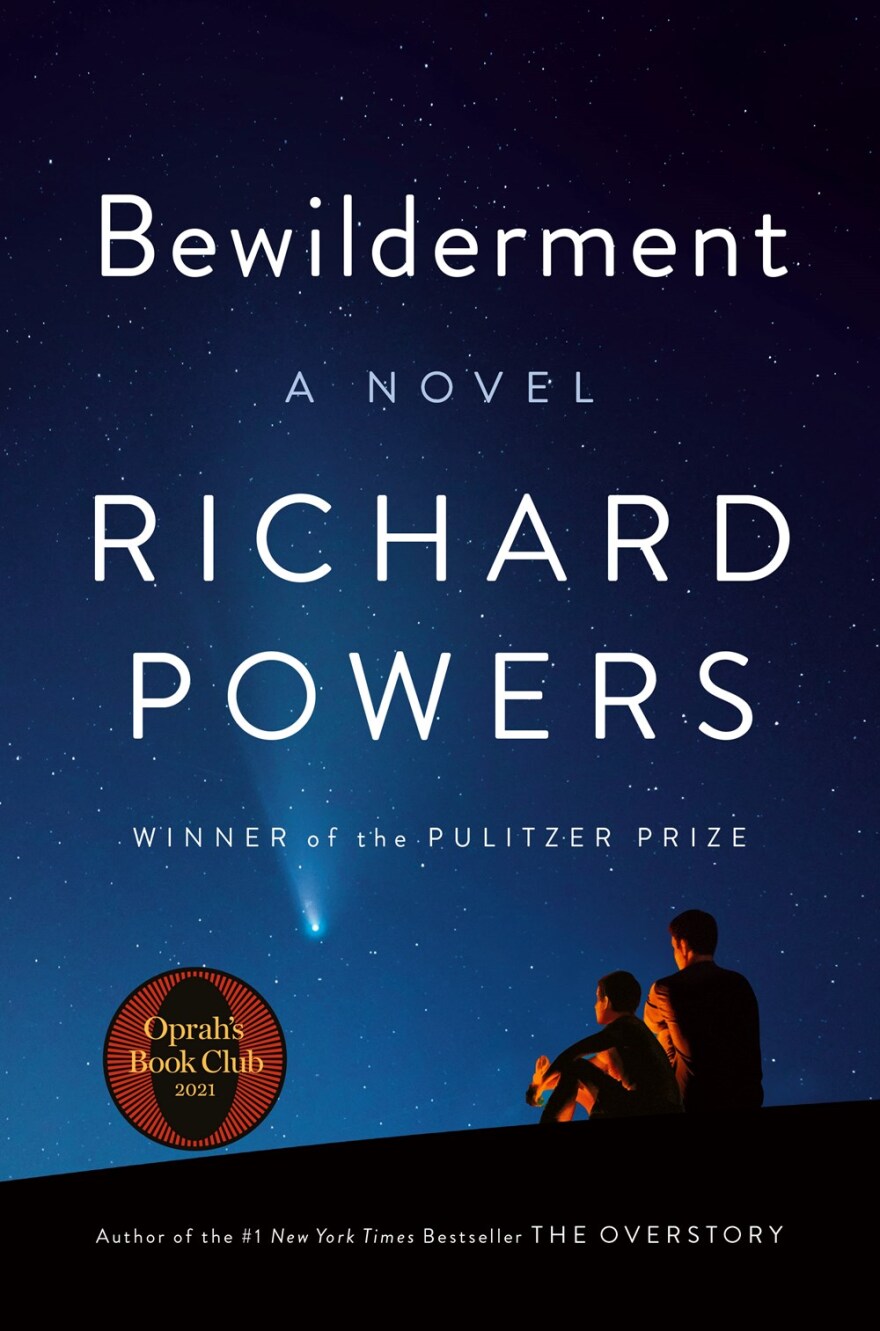I’ve riddled my copy of Richard Powers’ new novel with book darts to mark profound passages. Here’s just one of them from page 64:
“They share a lot, astronomy and childhood. Both are voyages across huge distances. Both search for facts beyond their grasp. Both theorize wildly and let possibilities multiply without limits. Both are humbled every few weeks. Both operate out of ignorance. Both are mystified by time. Both are forever starting out.”

Bewilderment focuses on both voyages. Astrobiologist Theo Byrne searches for signs of life in the cosmos while grieving the loss of his wife, an animal rights activist who died in a car accident. Meanwhile, he’s raising 9-year-old Robin, an acutely sensitive, intelligent boy who has been variously diagnosed with Asperger’s, ADHD and OCD. Robin’s moods swing wildly and sometimes violently, but Theo wants to avoid putting him on psychoactive drugs. Instead, he tries an experimental neurofeedback treatment that involves training the boy on the recorded patterns of his mother’s brain.
Powers won the 2019 Pulitzer Prize in Fiction for “The Overstory, a sweeping epic involving multiple characters and generations. This new one is slimmer and more intimate — less than 300 pages — but still packed with descriptions of the natural world and the mind-boggling expanse of outer space.
At its heart, Bewilderment is about the profound love between a father and son, and it makes a compelling case for retreating into nature for solace and healing. It’s grounded in reality, though, including the self-doubts of parenting that seem as limitless as the stars.



